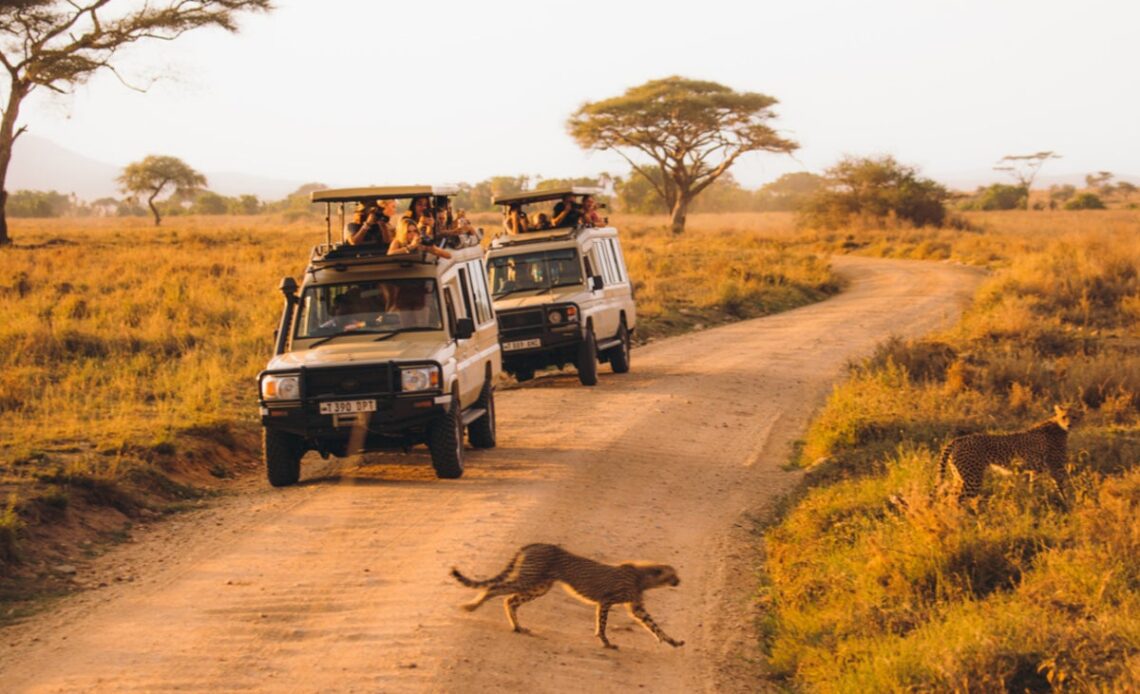With over one third of its land dedicated as national parks or reserves, starring the Big Five and the Great Wildebeest Migration, it’s no wonder Tanzania is considered Africa’s classic safari destination for first-timers and connoisseurs alike. But East Africa’s largest country is much more than that. You can summit snow-capped Kilimanjaro, the world’s tallest freestanding mountain, or follow Jane Goodall’s footsteps tracking chimps in the remote Gombe Stream National Park. Dive pristine reefs off Indian Ocean islands, discover diverse cultures and cuisines with Swahili, Indian and Arab influences or simply chill on postcard-perfect beaches with sand as soft as white pepper.
Travel restrictions and entry requirements
Tanzania’s latest travel advisory states fully vaccinated travellers need to present their vaccination certificates on arrival. If you’re not fully vaccinated, you’ll need a PCR test within 72 hours before departure, or you can pay around $10 to get a rapid antigen test on arrival. You should also complete a Traveller’s Health Surveillance Form within 24 hours before arrival. On leaving Tanzania, check with your airline/country of arrival to see if they require a test. You’ll need to wear a mask if visiting a testing centre. Visas are required for British travellers, which can be obtained online or on arrival.
Best time to go
Safaris are best in the dry season, when the grasses are low and wildlife can easily be seen, so between June and October in Tanzania’s Northern and Southern safari circuits. This also coincides with the renowned river crossings of the Great Migration in Serengeti, making it the busiest and most expensive time to visit. As an alternative, visit the southern Serengeti in February when some 200,000 calves are born. Kilimanjaro is at its best – and busiest – from late June to September too, but December to March can also bring good conditions for climbing.
Top regions and cities
Serengeti National Park
The star of African safaris, Serengeti means ‘endless plains,’ an apt name for a national park spanning 14,763sqkm, famous for its Great Migration. You’ll witness up to two million wildebeest and zebra traversing the vast savannah on their never-ending quest for fresh fodder. As they stampede northwards, they cross rivers bubbling with eager, evil-looking crocs to reach…
Click Here to Read the Full Original Article at The Independent Travel…
